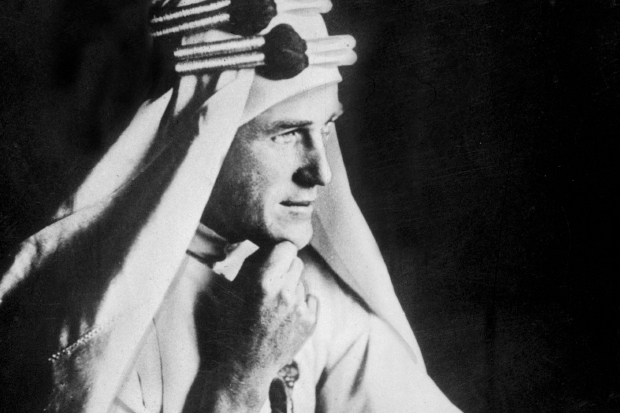Is there anything new to be said about T.E. Lawrence? I mean, really. In the century since his stirring exploits in the Arabian desert we have had all manner of biographies, from simpering hagiography to heartless hatchet job. We have had Lawrence the colonial hero and faithful imperial servant; Lawrence the linguist, explorer and spy, pioneer of guerrilla warfare; Lawrence the Machiavellian betrayer of the Arabs; Lawrence the preening, self-mythologising sado-masochist. Each generation projects its own prejudices and visions, fears and fantasies upon this unusual man.
Even now, 80 years after his death, the torrent of biographies shows little sign of abating. In recent years we have had studies by Lawrence James (2008), John Hulsman (2009), Michael Korda (2010), Scott Anderson (2013), Anthony Sattin (2014), Andrew Norman (2014) and Bruce Leigh (2014). We now know so much about his life that its many waypoints have become well-churned quagmires of debate.
Was he buggered at Deraa by Turkish forces, for example, as he famously claimed? Lawrence put the rape charge more delicately, writing that he had irrevocably lost the ‘citadel of my integrity’. It may never have happened. Possibly it was a later invention to discredit the Arab militants who had shopped him to the Turks. Maybe it was suggested to explain the scars accrued from sado-masochistic beatings. Perhaps we shall never know, and do we really care?
Neil Faulkner is an archaeologist and historian who has been part of the anti-war and anti-imperialist movement of recent years (I don’t know what that means either). One might expect the left-leaning author of a Marxist history of the world to be less taken by Lawrence than other scholars. In fact this is not the case. One of the most interesting findings of his archaeological Great Arab Revolt Project of 2006–2014, mostly carried out in southern Jordan, was that the Turks had military posts covering every single yard of the Hijaz railway, implying that Lawrence and the train-wrecking Arab guerrilla fighters were rather more of a military menace than has often been supposed and that ‘detractors who have portrayed him as a liar, a charlatan and a self-promoter are wrong’.








Comments
Join the debate for just £1 a month
Be part of the conversation with other Spectator readers by getting your first three months for £3.
UNLOCK ACCESS Just £1 a monthAlready a subscriber? Log in